The European Rugby Champions Cup – Historical Overview
As we catch our breath following a hugely successful Autumn international series for Northern Hemisphere rugby, we turn our attention to the sport’s premier club competition - the European Rugby Champions Cup (formally known as the Heineken Cup). This competition has been running for 21 years, seeing 11 different teams win, six teams win on multiple occasions and Toulouse winning the competition a record four times:
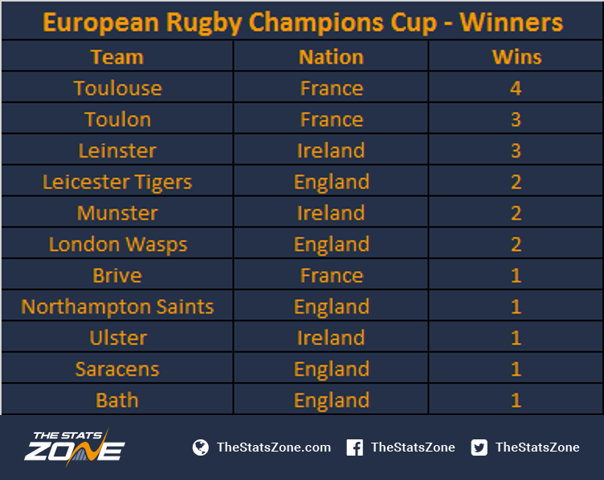
As this season’s tournament is underway we wanted to look further into this competition by providing a historical overview of the champions over the years. Which nation has produced the most winners? Has the nationality of the team affected international results and is there a correlation between the number of teams that have qualified from each country and the country of origin of the winning team?
Clubs qualify for the European Rugby Champions Cup via their final positions in their respective national/regional leagues (Aviva Premiership, Top 14, and Pro12), allowing for only the best teams to be entered into this prestigious competition.

Since the beginning of the tournament, a range of teams from seven countries have competed (predominantly Six Nations countries). France, Ireland, Wales, Scotland and Italy have always had at least one team qualify every year since 1995. However, England did not have any teams qualify in the 1995-1996 season or the 1998-1999 season, and apart from the Romanian team Farul Constanţa playing in the first ever Heineken Cup in 1995-1996, Romania have not been involved since.
As you can see in the table above, although Wales, Scotland and Italy have always had at least one team qualify, they have never had a team win the tournament. An Irish team have been crowned champions six times, an English team crowned seven times and the French have won the tournament eight times. In a sense, the number of teams that qualify from each country correlates to the country of origin of the winning team; in the history of the competition, the French have had 132 teams qualify, which is the most teams from any country and they have had a team win the European Rugby Champions Cup more times than any other country.
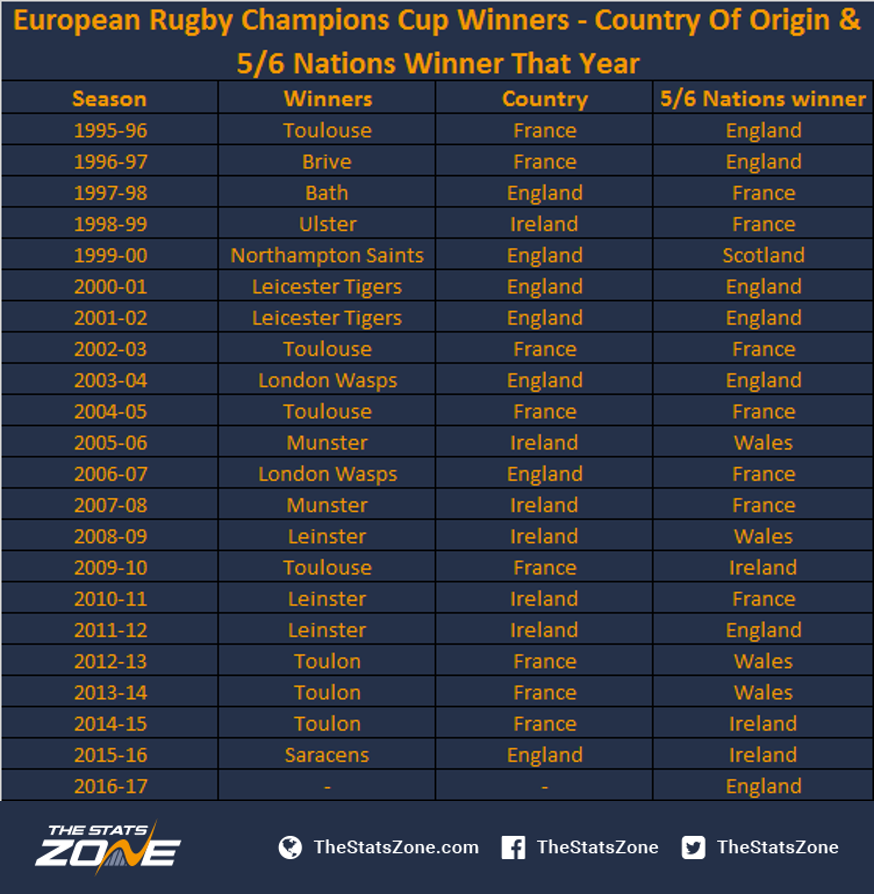
The tables above show a comparison of international results with the European Rugby Champions Cup winning team’s country of origin. There have been only five occurrences when a club from the same origin as the Six Nations winners have won the European Rugby Champions Cup. This is not an altogether surprising result given the fluidity of club rugby – top teams tend to have a broad range of nationalities in their ranks. Let’s probe this further:
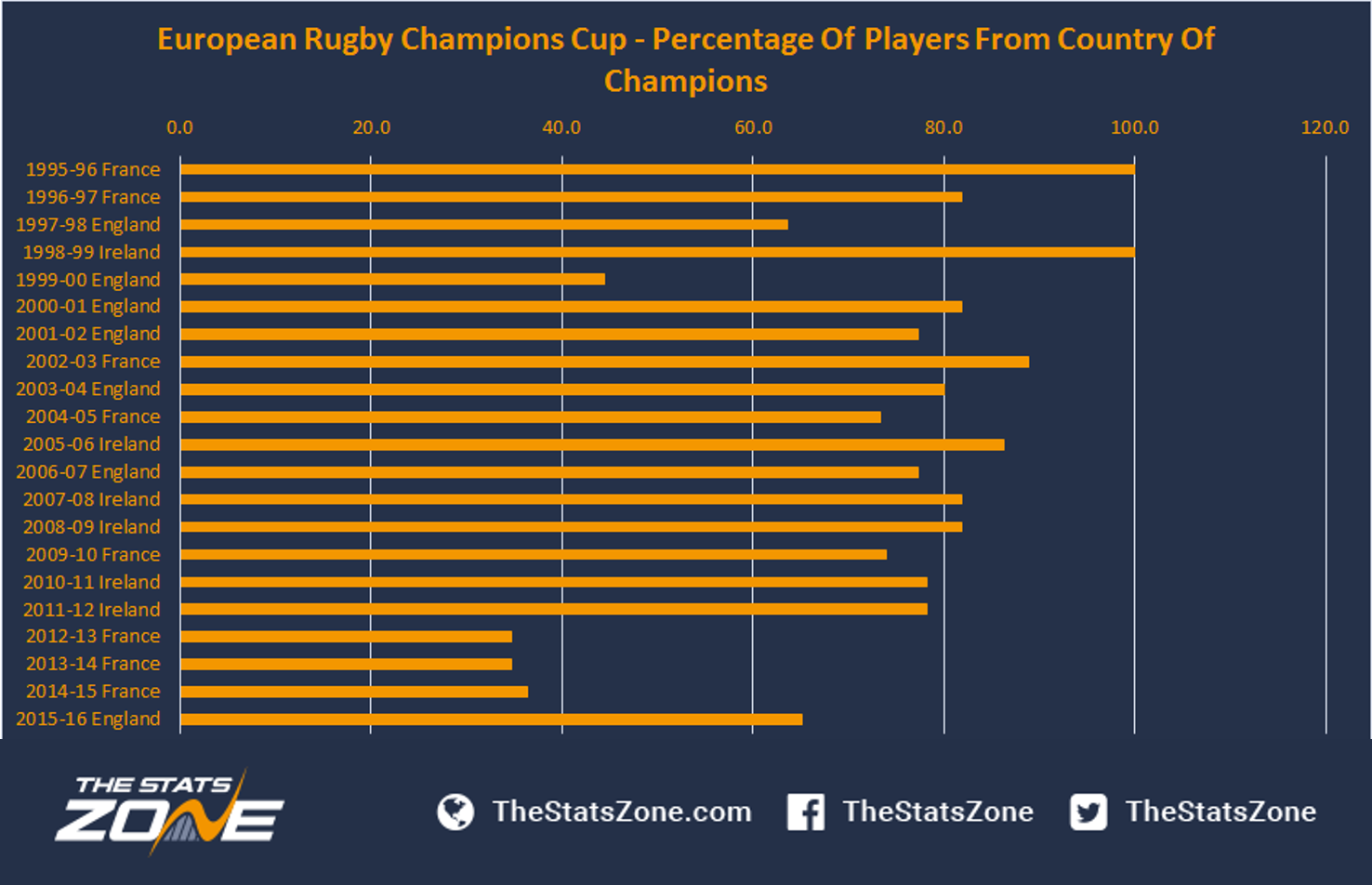
More recently, you can see a change occurring as teams have fewer players with the same nationality as the club’s origins so the link between European Rugby Champions Cup wins and international wins might be thin. This is particularly evident in the fact that under 50% of players in winning clubs from France in recent years have been homegrown, although the last time France did win the Six Nations (2010), a French club then went on to win the following European Rugby Champions Cup with a team containing 73% French players. This was the case from 2000-2005, as when an English club won the European Rugby Champions Cup with around an 80% English team, they internationally went on to win the Six Nations, and also the World Cup in 2003.
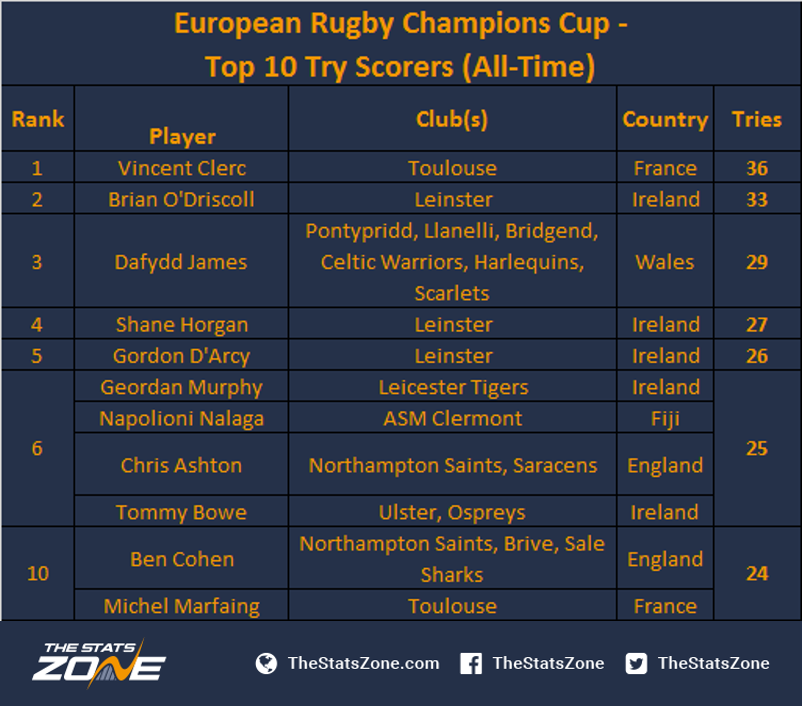
The highest try scorer in the history of the European Rugby Champions Cup is Frenchmen Vincent Clerc, who scored 36 tries in his 14 years playing for Toulouse. However, with him leaving Toulouse at the end of the season after not being offered a new contract, how long will Clerc stay at the top of the pile?
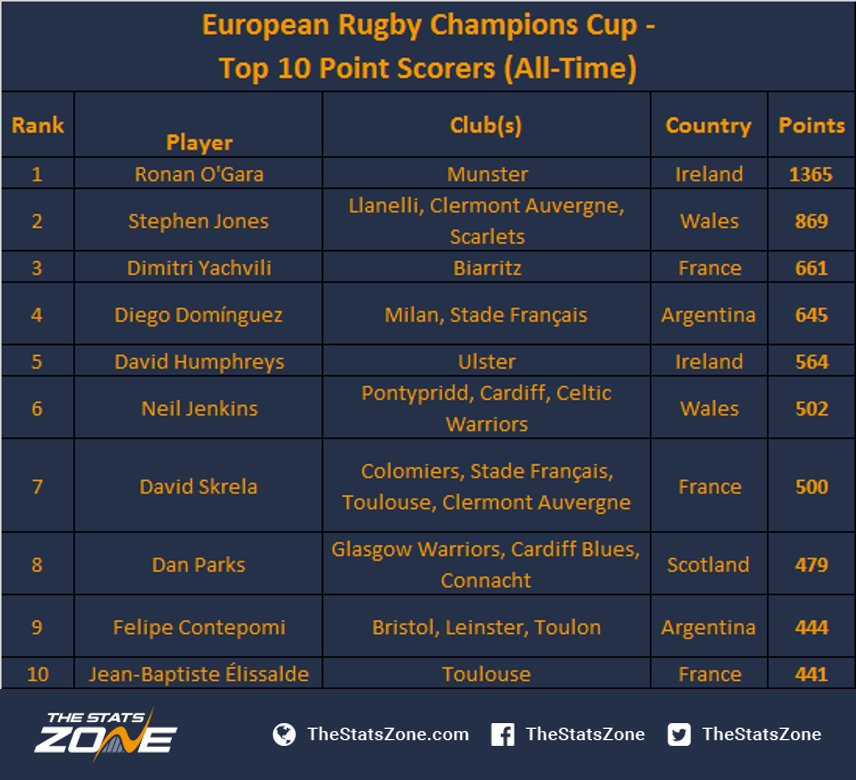
Ronan O’Gara, the number 10 for Munster and Ireland, holds the top spot for most points scored in the history of the European Rugby Champions Cup. All other players in the top 10 have retired, so it looks as if O’Gara will be sitting on top of the tree for some time yet. With us currently in the third round of this years European Rugby Champions Cup there is a long way to go before the winner is crowned. Last year’s winners Saracens are topping their pool group with 3/3 wins with Munster not far behind them, topping their pool group with 2/2 wins. Can Saracens win it for a second year in a row and add additional silverware to their cabinet? The next few months will reveal all.










